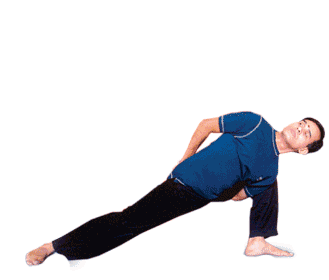Health tips
-
 Enjoy Ginger
Enjoy Ginger
The volatile oils in ginger have long made it a useful herbal remedy for nasal and chest congestion. Pour 2 cups of boiling water over a 1-inch piece of peeled, grated ginger; steep for 10 minutes; and strain. Add a pinch or two of cayenne pepper to the water and drink as needed.
-
 Embrace Bitters
Embrace Bitters
Combat a yen for sugar by following a Chinese medicine approach: Eat foods such as endive, radicchio, cooked greens, and olives.
-
 Eat Bananas
Eat Bananas
People whose diets are rich in potassium may be less prone to high blood pressure. Besides reducing sodium and taking other heart-healthy steps, eat potassium-packed picks such as bananas, cantaloupe, and oranges.
-
 Go for Garlic
Go for Garlic
Adding raw or lightly cooked garlic and onions to your meals may help keep you healthy this winter. Both foods appear to possess antiviral and antibacterial properties and are believed to boost immunity.
-
 Take Tulsi
Take Tulsi
Research suggests that this Ayurvedic herb, also called holy basil, may help manage levels of the stress hormone cortisol, helping to boost your mood. Look for teas and supplements in health-food stores and follow package directions.
-
 Eat Avocados
Eat Avocados
For dry skin, incorporate more avocados into your diet. They're rich in monounsaturated fat and vitamin E, both of which promote healthy skin. Try them on salads and sandwiches, and even in smoothies.
-
 Hydrate
Hydrate
To treat an acute migraine, drink a full glass of water -- dehydration can trigger headaches. Even if you need to take a medication for the pain, try wrapping your head with an Ace bandage so that it covers your eyes, then lie down and breathe deeply. This often helps the pain pass more quickly.
-
 Try Acupressure
Try Acupressure
Calm a queasy stomach with this quick acupressure trick: Use your index and middle fingers to press down on the groove between the tendons that run from the base of your palm to your wrist. Wristbands that apply pressure to this spot are available at drugstores and online.
-
 Drink Mint Tea
Drink Mint Tea
Ease occasional indigestion by sipping a cup of peppermint tea after your meal. Peppermint improves the flow of bile, which moves food through the digestive tract more quickly. Use peppermint with caution if you have acid reflux; it can make that problem worse.
-
 Get Your Daily D
Get Your Daily D
Get your vitamin D level checked with a simple blood test. D is at least as important as calcium for strong bones, and most Americans don't get enough. Get a minimum of 1,000 IU a day through supplements and food
-
 Have Some Honey
Have Some Honey
Research suggests that honey may be more effective than over-the-counter cough syrup at quelling nighttime coughing. Use a medicinal-grade variety such as manuka honey and take up to 2 teaspoonfuls at bedtime.
-
 Don’t skip breakfast.
Don’t skip breakfast.
Studies show that eating a proper breakfast is one of the most positive things you can do if you are trying to lose weight. Breakfast skippers tend to gain weight. A balanced breakfast includes fresh fruit or fruit juice, a high-fibre breakfast cereal, low-fat milk or yoghurt, wholewheat toast, and a boiled egg.
-
 Bone up daily
Bone up daily
Get your daily calcium by popping a tab, chugging milk or eating yoghurt. It’ll keep your bones strong. Remember that your bone density declines after the age of 30. You need at least 200 milligrams daily, which you should combine with magnesium, or it simply won’t be absorbed.
-
 Join a walking group
Join a walking group
Walking in a group is a great way to start walking, make new friends and stay motivated. Walking for Health’s Walk Finder allows you to search for organised walks near you. Many of the walks are aimed at people who do little or no exercise, but who would like to become more active.


